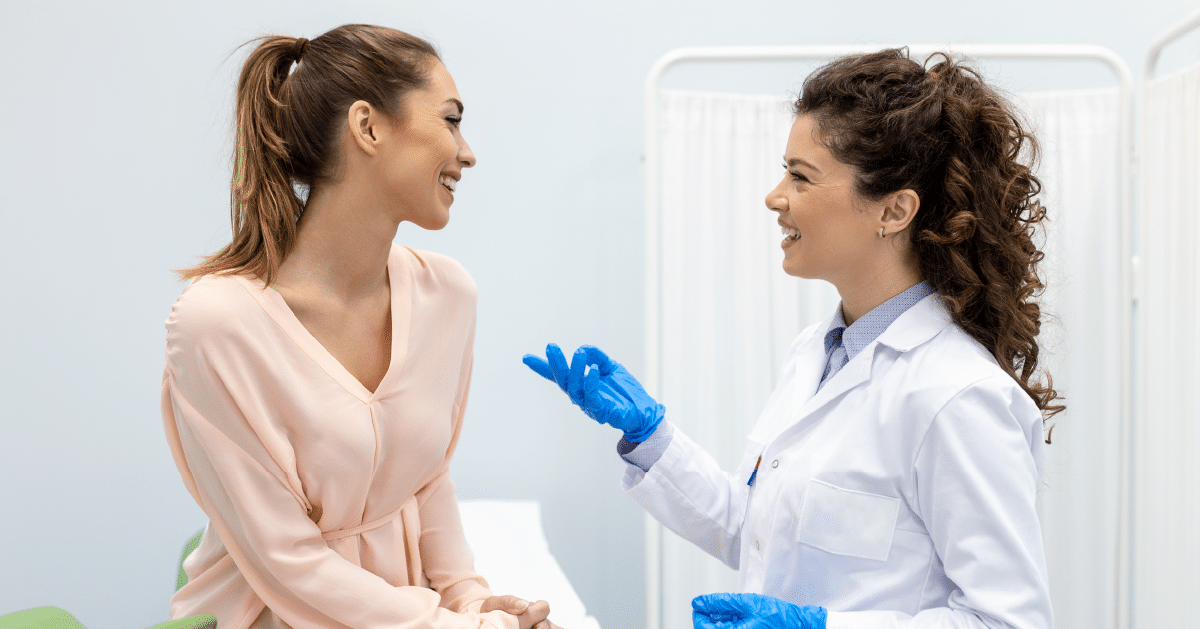A simple answer to this question is that you should visit your gynecologist every year at a minimum. The reality of the matter is that how often you visit depends on your condition and concerns. To help you figure out an answer that is tailored for you, we laid out all the information you need for how often you should have a gynecological exam.
What are Gynecological Exams?
A gynecological exam, also known as a well-woman exam, is essentially a check-up on the female reproductive system. This appointment will usually include a pelvic exam, pap test, blood pressure check, breast exam, and tests for sexually transmitted diseases (STDs) or sexually transmitted infections (STIs).
During a pelvic exam, you may consent to your doctor to examine the vulva and labia for any abnormalities, such as irritation, swelling, redness, and STDs or STIs. Regular pelvic exams are essential for catching any reproductive health conditions.
After the external examination, the gynecologist will inspect the interior vagina with a speculum. The doctor will assess the status of the cervix and perform a pap smear, which takes a small sample of cervical cells to test for cervical cancer. The Pap test is an essential part of women’s health, as cervical cancer kills about 4,000 U.S. women every year, and early diagnosis is the most essential step to getting effective treatment. Swabs of the cervix can also be used to check if you have an STD.
Breast exams, which involve the doctor checking for any abnormalities in the breast tissue, are also a regular part of your exam. Sometimes, urine tests are also required during gynecology visits to check on your overall health or to test for STDs, but they are more common as a part of prenatal and pregnancy visits.
Another aspect of gynecological exams is discussing birth control options. This can include starting a daily pill prescription or receiving an implant or an IUD. Gynecologists will also help you replace the implant or IUD when it has expired.
While not a part of the annual exam, you can also visit gynecologists if you are experiencing any complications with your menstrual cycle. You should talk to them if you are concerned about irregularity, severe pelvic pain, severe negative symptoms, or unusual discharge or odor, among other issues.
How Often Exams Should Occur
Now that we have covered a review of what happens in a gynecological exam, let’s go in-depth into how age and health conditions will affect how often you should have a gynecological exam.
Teenagers
Most girls have their first period by the age of 15, and this is the time they should start visiting a gynecologist. Teenagers are not typically required to complete a pelvic exam or Pap test unless they are sexually active. The initial exam for most teenagers is an opportunity to ask about the changes in their bodies and get a baseline for their medical records.
After this first visit is completed, teenagers can visit the gynecologist every other year for preventative checkups. More visits can be scheduled to discuss health concerns over irregular menstrual cycles, serious period-related pains, birth control, and any other issues that may cause them concern.
Women Over 21
Women between the ages of 21 and 29 should have a gynecological exam at least once a year to get pelvic and breast exams. As we mentioned earlier, these exams are essential in the early detection of serious health conditions, which is why it’s vital to get regular checkups.
Pap tests will typically be completed every three years. These used to be a part of your annual exam, but medical professionals have begun to understand cervical cancer more and now know it takes years to develop.
Women ages 30 and over will need to complete the pap test and testing for human papillomavirus (HPV), a common cause of cervical cancer. Once confirmed the virus isn’t present, the pap test can be spread out every five years, and as long as you are in good health, visiting the gynecologist every other year is encouraged.
You may need to visit the gynecologist more often for testing if you:
- Have had cervical cancer.
- Had pap test results with precancerous cells.
- Have an HPV infection.
- Have a weakened immune system.

Women in Menopause and Post-Menopause
Menopause is a physical transitional time after 12 months have passed from your last period. Leading up to this time, women may experience changes in their menstrual cycles, hot flashes, and other symptoms.
This transition typically occurs between the ages of 45 and 55, and it can last anywhere from seven to 14 years. It all depends on the woman’s health condition and lifestyle factors like smoking, race, and ethnicity.
Menopause can also be triggered by a hysterectomy or the surgical removal of the ovaries. Women who have undergone these surgical procedures and have non-cancerous conditions may no longer need to visit a gynecologist.
Post-menopause is the period when women are more vulnerable to heart disease and osteoporosis. Preventative check-ups with a primary care doctor are essential.
Women Over 65 Years Old
Generally, women 65 and older will not need to visit the gynecologist as often. HPV tests are still encouraged every three to five years to ensure you are free from cervical cancer. Annual exams are still encouraged, especially if you are sexually active.
Women may also see a gynecologist to address health issues like treatment for health issues like as vaginal dryness, unusual discharge or odors, painful intercourse, or urinary incontinence.
Trusted, Board-Certified Gynecologists
How often you should have a gynecological exam entirely depends on your age and health conditions, and the annual exam is just one reason to see a gynecologist. Any concerns you may have about your reproductive and uterine health can be first addressed by your gynecologist, and you can schedule these visits outside of your annual exam.
Texas Center for Health can address your gynecology needs with exceptional, personalized reproductive care, as well as various other healthcare services. We are located in Beaumont and Houston, and you can contact us to schedule your appointment today.

